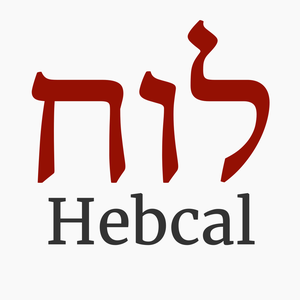Your comments
Our yahrzeit and anniversary calendar is not a static calendar. If you create a personal anniversary calendar and then subscribe using our recommended subscription instructions in Google calendar, Outlook, or Apple calendar, you can add new events at a later date. It will take about 24 hours for those new events to show up.
please read the following article for more detail details:
https://www.hebcal.com/home/632/how-to-make-changes-to-a-yahrzeit-anniversary-calendar
Thanks for using Hebcal! To download holidays and candle-lighting times, navigate to https://www.hebcal.com/hebcal and fill out the form with your preferences (including specifying your location in the Candle-lighting & Fast times section of the form).
Calendars created by Hebcal are easily downloaded and imported into various calendar apps, including iPhone, Google Calendar, Outlook PC, Outlook Web, macOS Calendar, and any app that supports iCalendar (.ics) feeds or subscriptions.
yes! Please use our Yahrzeits, Birthday, and Anniversary calendar. Create a personal list of Yahrzeit (memorial) and Yizkor dates, Hebrew Birthdays and Anniversaries for 20+ years. Free annual email reminders & calendar downloads.
Get started »
Converting between Hebrew and Gregorian dates for very early years is mathematically possible (and is supported by our Hebrew Date Converter), but the results should be treated as approximations rather than historically precise dates.
The Hebrew calendar evolved into a fixed, calculation-based system beginning in the 4th century CE, traditionally associated with reforms attributed to Hillel II (a fifth generation amora). This shift replaced earlier dependence on eyewitness moon sightings and centralized rulings on leap years with a predictable mathematical framework. The detailed rules were recorded in writing over the following centuries and were later systematized by Maimonides in the 12th century, by which point the calendar had become uniform across Jewish communities by the medieval era.[1]
Before the calendar rules were fully standardized in the early medieval period, both the Hebrew and civil calendars were influenced by local practice, observational methods, and later retroactive calculations. As a result, modern algorithms can project dates backward consistently, but they may not reflect how dates were actually observed or recorded at the time.
Any results for year 1752 CE and earlier published on Hebcal.com will be inaccurate. Hebcal does not take into account a correction of ten days that was introduced by Pope Gregory XIII known as the Gregorian Reformation.
We have confirmed that this bulk delete feature is only available in Classic Outlook. Microsoft provides instructions on how to go back to classic Outlook for Windows
Perhaps you'd like our Hebrew calendar dates (Hebrew) calendar feed?
Displays the Hebrew date without nikud (e.g. י״ח טבת) every day of the week.
Hebrew year is included in event title on the 1st of each month (e.g. א׳ כסלו תשפ״ב)
365 events per year · 3-year perpetual feed
These have been successfully removed. Please notify us again if you find any additional inappropriate advertisements so we can suppress them
Did these instructions work for you?
Great suggestion! Do you have a scanned copy of the document that you can send to us (perhaps just an excerpt if it's summarized in the beginning or end of the book) that shows the schedule with division by day and month?
Customer support service by UserEcho


We accept some advertisements through Google AdSense. We have configured Google AdSense to block certain categories of advertisements that we feel do not belong on Hebcal.com (“Video Games”, “Alcohol”, “Gambling & Betting”,“Dating”, “Cosmetic Procedures & Body Modification”, among others). We also block advertisements from Christian and Messianic Judaism organizations.
To show your ads specifically on Hebcal.com, you should use a feature in Google Ads called Placement Targeting. Since Hebcal participates in AdSense, it is part of the Google Display Network (GDN), meaning you can "hand-pick" it as a destination for your ads.
Here is the step-by-step process to set this up:
1. Create a Display Campaign
Placement targeting is primarily available for Display Network campaigns.
2. Navigate to Content Targeting
Once you are setting up your Ad Group (or editing an existing one):
3. Target hebcal.com
hebcal.cominto the box.hebcal.com/shabbat).4. Adjust Targeting Settings ("Targeting" vs. "Observation")
This is a critical step to ensure your ads only show on Hebcal:
Important Considerations
hebcal.com) rather than just one specific URL.